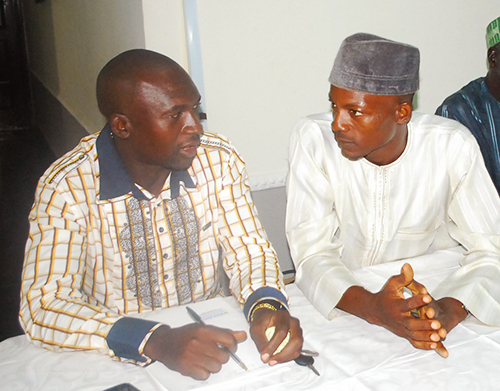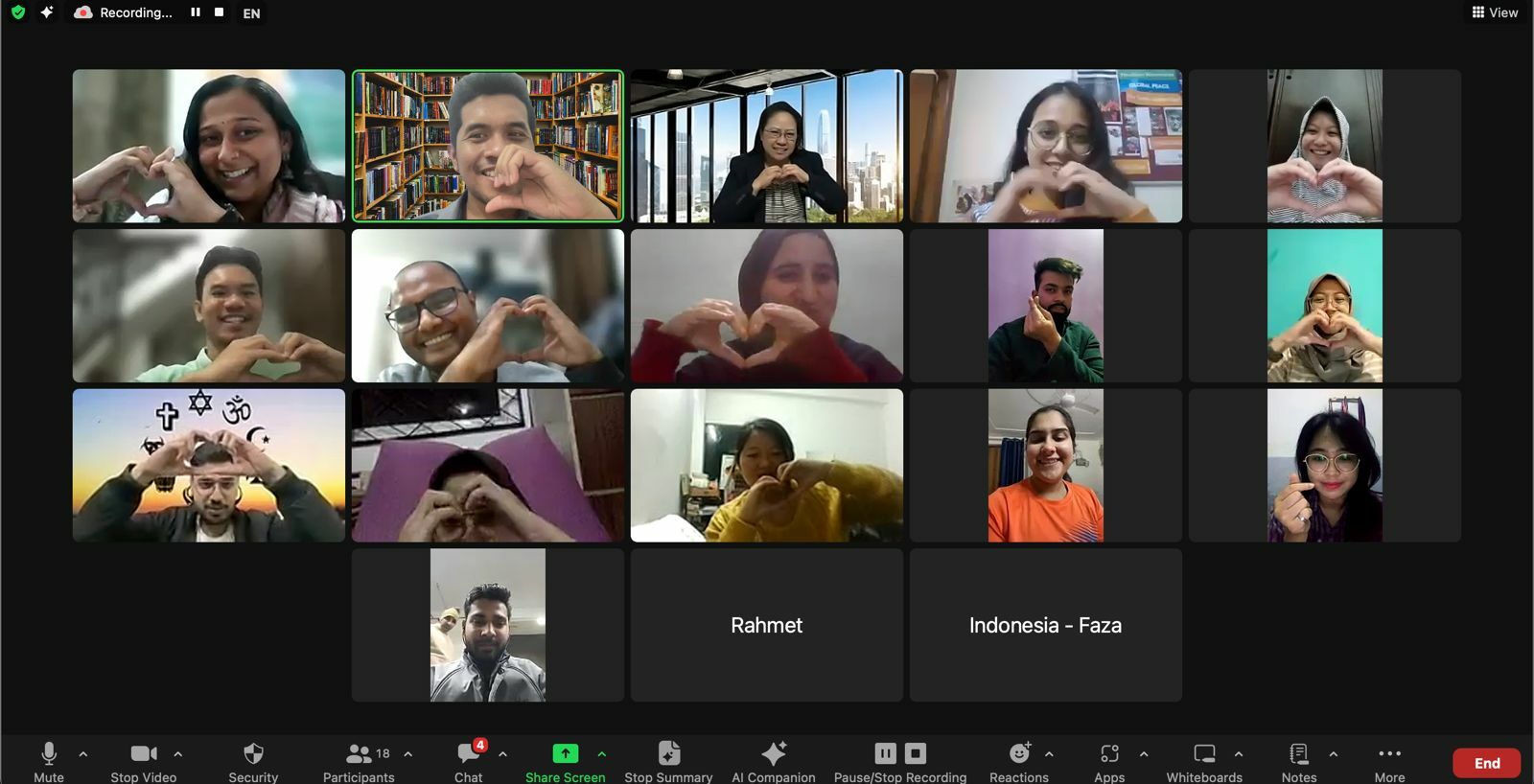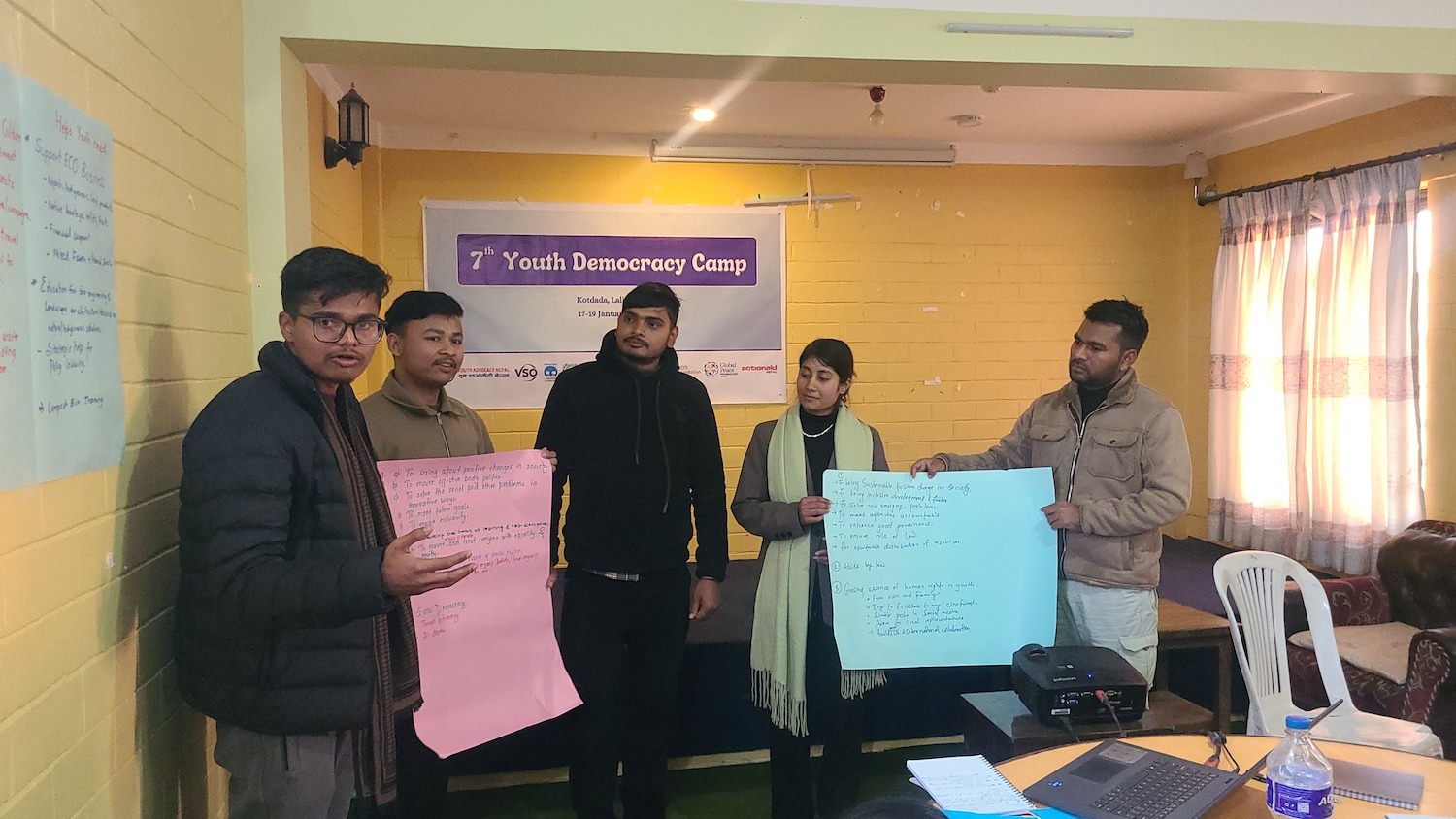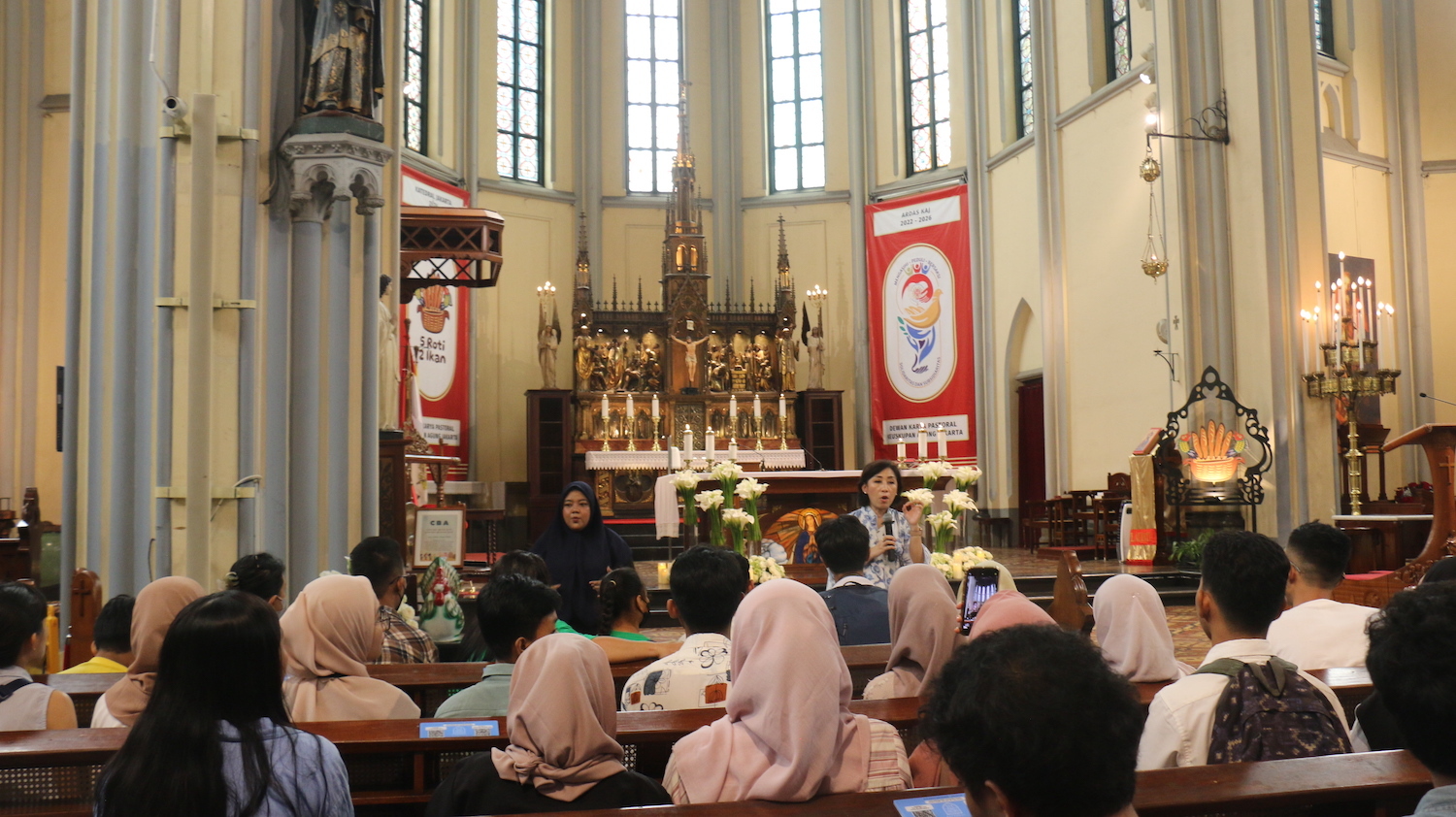By: Erin Worden
Research Intern for the Global Peace Foundation
Denison University, Class of 2017
The inbox of a typical undergraduate piles with countless emails each day. For me, it only took one message to change everything.
This past fall, I received an email from Annie, a very intelligent and admirable acquaintance of my awkward, overzealous freshman self. At the time, Annie was president of my university’s chapter of the Sustained Dialogue Campus Network (SDCN) – an initiative backed by the International Institute for Sustained Dialogue (IISD), a Global Peace Foundation (GPF) partner. Annie explained that the campus organization – known colloquially as “SD” – assembles small groups of diverse participants throughout the semester to identify areas of campus conflict, share relevant experiences and ideas, and ultimately work together to find solutions that foster a more inclusive and aware community. She encouraged me to consider participating, and the rest was history.
Dialogue, as I soon discovered, is an instrument of peace.
It is more than a casual conversation. Dialogue – much like the Global Peace Foundation’s mission – thrives on the level of ideas. Sharing specific experiences, sentiments, and thoughts allows dialogue participants to identify the underlying essence of a conflict, which almost always involves answering the question, “Why?”Dialogue groups often conclude that concrete on-campus conflicts are grounded in more conceptual issues, such as a fear of being vulnerable, a collective breach of respect, and an unwillingness to empathize.
 Global Peace Foundation offers innovative approaches to fostering interreligious cooperation. This photo was taken from a recent Interfaith Youth Leaders Retreat series seeking to mitigate religious violence in northern Nigeria.
Global Peace Foundation offers innovative approaches to fostering interreligious cooperation. This photo was taken from a recent Interfaith Youth Leaders Retreat series seeking to mitigate religious violence in northern Nigeria.
Under intimate and trust-building conditions, group dynamics begin to shift. I have experienced that the collection of acquaintances gathered at the beginning of the semester becomes a group of friends, entrusted with each other’s most guarded thoughts and experiences.
Harold Saunders – architect of the Sustained Dialogue process and former U.S. statesman crucial in negotiating Arab-Israeli peace in the 1980s – believes in these bonds. In an informational video released by SDCN, Saunders said, “Relationships change if you bring people back together over and over again through a discernible pattern of evolution.” The importance and power of these encounters was recently featured in a GPF USA and Cooperation Ireland forum outlining Irish approaches to peace; the forum concludes these very relationships are the essence of peacebuilding.
With the relationships built and the root of conflict identified, group participants translate their ideas into positive, sustainable action within the conflict community. Campus solutions born from Sustained Dialogue groups can include the creation of organizations dedicated to ethnically underrepresented students, a call for reforms to handicap accessibility policies, or a commitment to expand the dialogue to the broader campus community.
Dialogue reminds me that all people share a common humanity, a shared vision of the world encapsulated by GPF’s “One Family under God” principle.
Sustained Dialogue is a public peace process. It changes communities for the better.
Perhaps the greatest lesson I have learned this year involves the transcendence of the human experience. Dialogue reminds me that all people share a common humanity, a shared vision of the world encapsulated by GPF’s “One Family under God” principle.
Engaging with members of the human race – especially across the fault lines of conflict that limit and antagonize interaction – in meaningful, sustained dialogues not only alters perceptions and understandings but also fundamentally changes global conduct.
For example, a faith-based peace council similar to the model proposed at the 2013 Global Peace Convention has the potential to impact global interactions between religious groups by providing a public platform for sustained dialogues. According to the Pew Research Center, roughly 84 percent of people worldwide claim some form of religious identity, which has often contributed to global conflict. To address these and other identity-based conflicts – including ones that hinder development – GPF encourages religious leaders to engage in articulating universally accepted principles to build consensus around shared values. These dialogues between the moral authorities of faith communities can create openings for new relationships and understandings.
Sustained Dialogue is a public peace process. It changes communities for the better.
While formal settings for dialogues are crucial for securing peace, there is always a more personal opportunity for dialogue. Each person – as a member of direct families and a more global kin – has the responsibility and opportunity to engage in thoughtful dialogue with those around them. A vision of the world living as one family is one where all strives toward – and succeeds in – achieving peace.
Erin Worden is a Pittsburgh-native and rising sophomore at Denison University in Granville, Ohio, where she is a double major in English Literature and International Studies. Erin’s area of academic concentration focuses on the identity negotiation of populations within conflict zones. She serves as a moderator and Leadership Team member for her campus’s chapter of the Sustained Dialogue Campus Network, as well as contributing to the Denison Community Association as the Events Captain. Outside of her academic life, Erin enjoys spending time with family and friends, traveling, tinkering with the Adobe Creative Suite, and eating Thai food.
For Articles Related to GPF’s recent Interfaith Activities:
GPF Nigeria’s Interreligious Youth Leadership Retreats:
- Coverage of 2nd Retreat by Leadership News Outlet
- Report on the 1st Leadership Retreat in Kaduna State
International Multifaith Youth Assembly in Indonesia:



